Jury Begins Deliberations In George Floyd Murder Trial
Jurors on Monday began mulling the fate of the white ex-Minneapolis policeman accused of killing African-American man George Floyd, a death that sparked a nationwide reckoning on racism and that prosecutors called a "shocking abuse of authority."
"You must be absolutely fair," Hennepin County Judge Peter Cahill said in his final instructions to the 12-member jury hearing the case against former officer Derek Chauvin. "Consider and weigh the evidence and apply the law."
Chauvin, 45, is charged with murder and manslaughter over Floyd's May 25, 2020 death, which sparked protests against racial injustice around the world and has become a landmark test of police accountability in the United States.
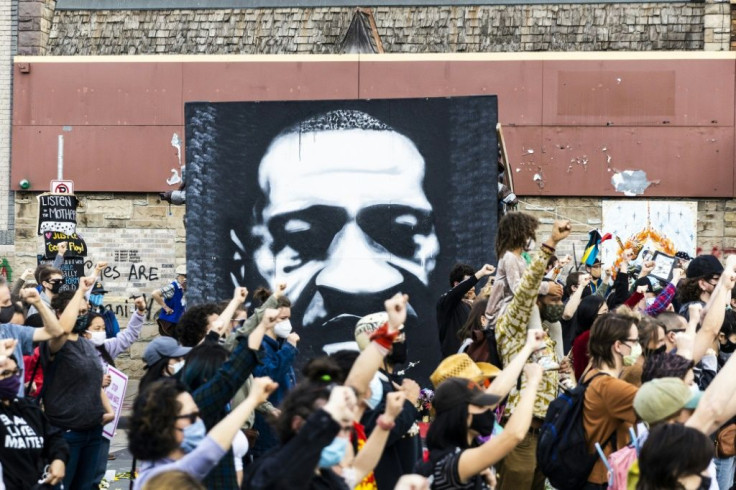
Chauvin was captured on video kneeling on Floyd's neck, as the latter was pinned facedown and handcuffed on the ground for more than nine minutes complaining, "I can't breathe."
In his instructions to the jury, the judge touched on the significance of the case, which comes amid heightened tensions fueled by other police killings.
"You must not let bias, prejudice, passion, sympathy or public opinion influence your decision," Cahill said. "You must not consider any consequences or penalties that might follow from your verdict."
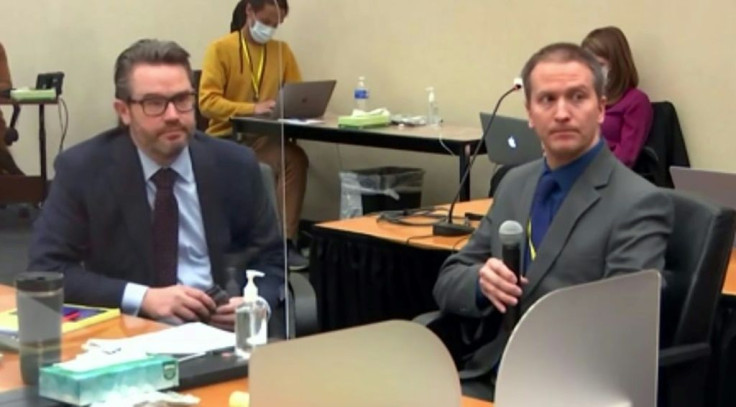
Prosecutors, in closing arguments to the jury, which will be sequestered during deliberations, repeatedly showed the harrowing video seen by millions around the world.
"This case is exactly what you thought when you saw it first, when you saw that video," prosecutor Steve Schleicher told the jury.
"You can believe your eyes," Schleicher said. "It's exactly what you knew, it's what you felt in your gut, it's what you now know in your heart."
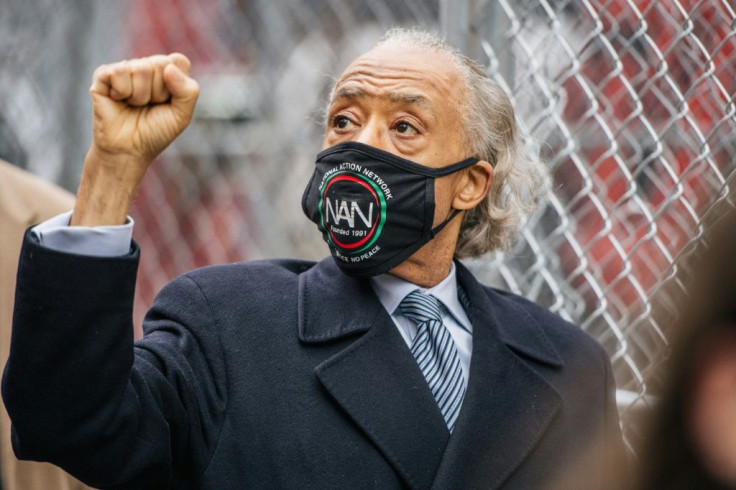
"This wasn't policing, this was murder," Schleicher said. "Nine minutes and 29 seconds of shocking abuse of authority.
"The defendant is guilty of all three counts. And there's no excuse."
Defense attorney Eric Nelson told the jury they need to look at Chauvin's actions "from the perspective of a reasonable police officer."
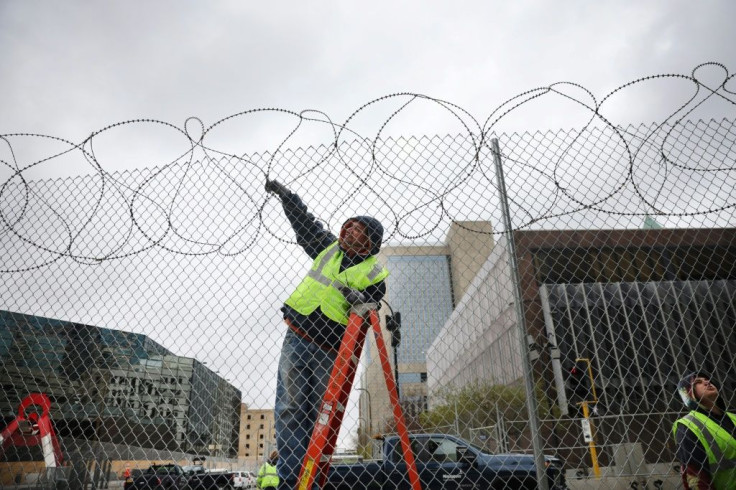
"He did not purposefully use unlawful force," Nelson said. "This was not a neck restraint. This was not a choke hold."
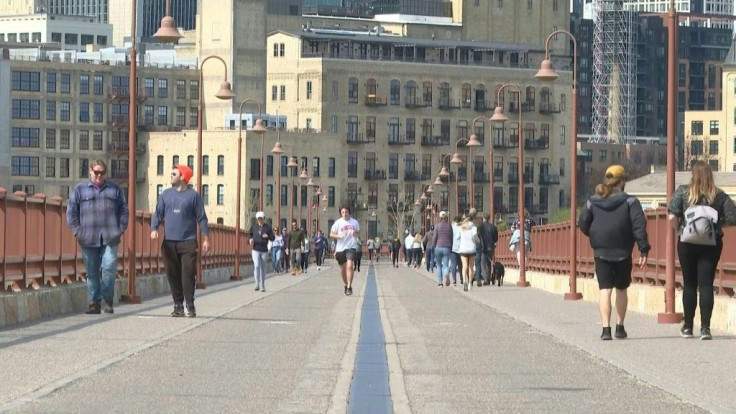
Nelson said Floyd's heart disease and drug use were factors in his death.
"They're trying to convince you that Mr. Floyd's heart disease played no role," he said.
"I'm not suggesting this was an overdose death," Nelson said, "but it is a preposterous notion to say that this did not come into play here."
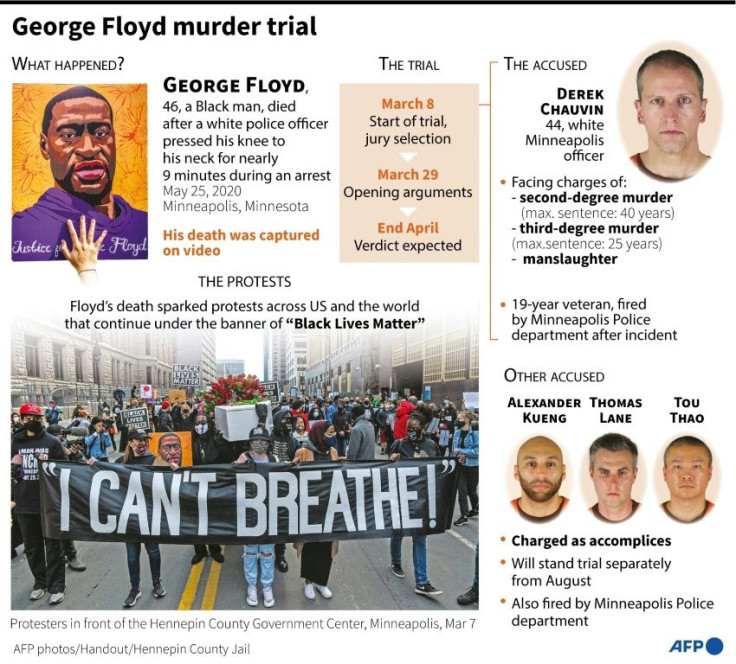
Nelson urged the jury to find Chauvin not guilty: "The state has failed to prove its case beyond a reasonable doubt."
Schleicher said Chauvin violated training, did not follow the police department's use of force rules and did not perform CPR on Floyd.
"George Floyd was not a threat to anyone," he said. "He was not trying to hurt anyone."
Chauvin, a 19-year veteran of the Minneapolis Police Department, faces a maximum of 40 years in prison if convicted of the most serious charge -- second-degree murder.
Dressed in a light grey suit and dark blue shirt and blue tie, Chauvin took off his face mask to listen to closing arguments, but his face displayed little emotion.
Tensions are high as the jury begins deliberations, with National Guard troops deployed in Minneapolis after Daunte Wright, a 20-year-old Black man, was shot dead in a suburb of the Minnesota city on April 11 by a white policewoman.
Some 400 protesters marched through the city calling for Chauvin's conviction, chanting, "The world is watching, we are watching, do the right thing."
The White House was in touch with local authorities, governors and mayors in the states. "We will continue to encourage peaceful protests, but we're not going to get ahead of the verdict," spokeswoman Jen Psaki said.
Nelson asked the judge to declare a mistrial after Maxine Waters, a Democratic member of Congress from California, attended a protest in Minnesota and called for a guilty verdict and more demonstrations.
"I hope that we are going to get a verdict that will say, guilty, guilty, guilty," Waters said. "We've got to stay in the street and we've got to demand justice."
The visibly frustrated judge denied the request but said, "I wish that elected officials would stop talking about this case."
Among the 38 witnesses who testified for the prosecution were bystanders who watched Floyd's arrest for allegedly using a counterfeit $20 bill to buy cigarettes.
Darnella Frazier, the teenager who took the video that went viral, said Floyd was "scared" and "begging for his life."
Much of the evidence phase of the trial involved testimony from medical experts about Floyd's cause of death.
A retired forensic pathologist called by the defense said Floyd died of cardiac arrest brought on by heart disease and fentanyl and methamphetamine.
Medical experts for the prosecution said Floyd died from a lack of oxygen from Chauvin's knee on his neck and that drugs were not a factor.
Police officers testifying for the prosecution -- including the Minneapolis police chief -- said it was excessive and unnecessary.
© Copyright AFP {{Year}}. All rights reserved.





















